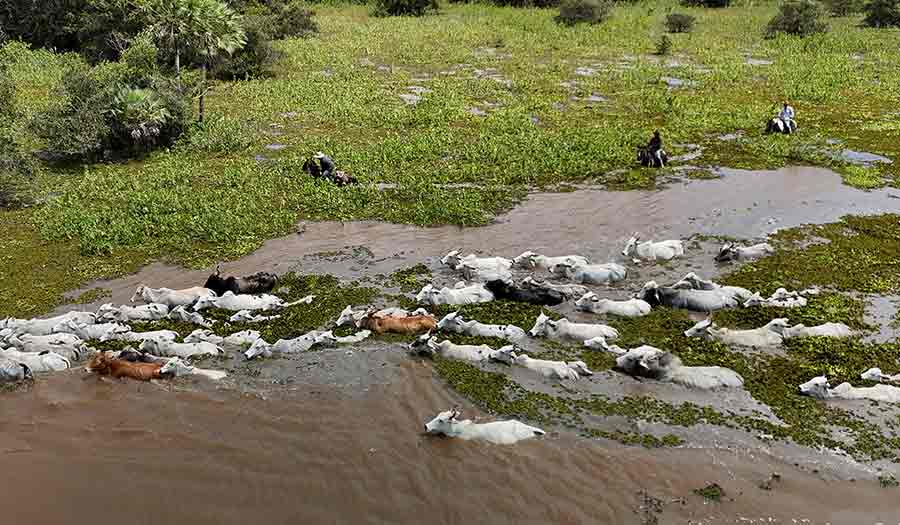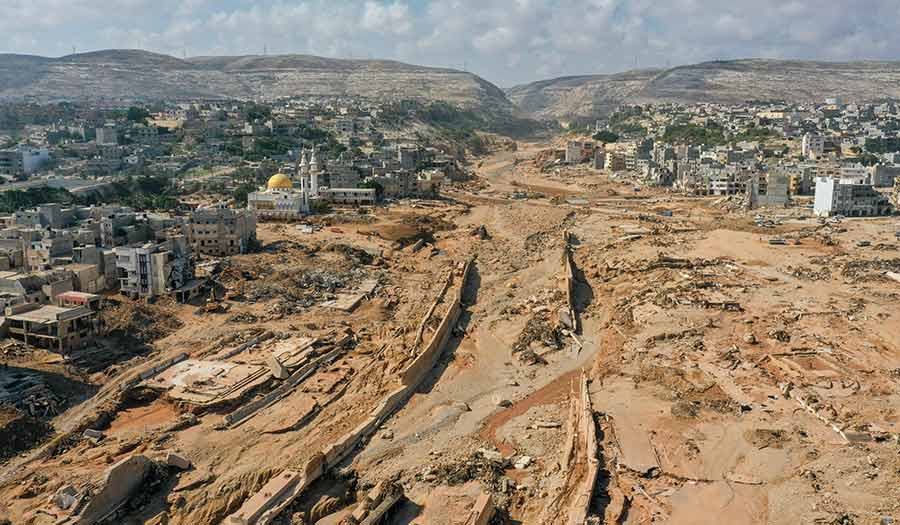 REUTERS/Ipa Ibanez
REUTERS/Ipa Ibanez
World News Desk
Learn the why behind the headlines.
Subscribe to the Real Truth for FREE news and analysis.
Subscribe NowBENI, Bolivia (Reuters) – In Bolivia’s rural region of Beni near the border with Brazil, vast grasslands where cows once grazed have been submerged, forcing cattle and the cowboys that herd them to swim or wade to reach small patches of higher ground.
The South American nation has been hit by some of the most intense rains in decades, which have left soy fields and ranches underwater, putting at risk exports to overseas markets and pushing up local food prices.
“The flooding we are experiencing right now is very unusual, very severe for this time of year,” cattle rancher Gunther Amatller told Reuters as he rescued his livestock from the flood waters. “The water just keeps rising. It’s hard to predict how much higher it will rise.”
According to local estimates, some 200,000 head of cattle, or about 2 percent of the national herd, are at risk, struggling with flood water and fatigue. Beni supplies beef nationwide and exports to markets such as China. The floods have hit 590,000 families and killed at least 55 people.
“My cattle are suffering and the animals are emaciated. Plus, there are a lot of snakes and jaguars in that flooded area,” lamented Teresa Vargas, owner of the Cheperepije ranch.
The Mamore River, an Amazonian river that runs through Bolivia and Brazil, has burst its banks, flooding everything in its path.
In towns such as Puerto Almacen and Puerto Ballivian, entire families have abandoned their homes, seeking refuge in makeshift shelters on the side of the road.
“We are forced to leave our houses,” Mayra Peralta said, her voice breaking. “Every day, the water rises.”
In Loma Calatayud, Jesus Martinez helplessly showed how his rice, plantain, and cassava crops have disappeared. His wife cooks precariously on a wooden platform, while water surrounds their home.
“Everything is underwater,” said Mr. Martinez.
Indigenous women, such as Edilberta Huaginoe, cook in hastily constructed camps on higher ground, trying to feed their children with what little they can salvage from the water.
“The rice is underwater, the plantains and cassava are underwater, and we can’t get them out because they’re too deep,” she said. “This is where we’ll come to sleep until the water recedes.”
- Real Truth Magazine Articles
- WEATHER & ENVIRONMENT
 The Unfair Toll of Extreme Weather
The Unfair Toll of Extreme Weather
More on Related Topics:
- ‘It’s Not Safe to Live Here.’ Colombia Is Deadliest Country for Environmental Defenders
- ‘Everything Destroyed’ as Indonesia’s Aceh Grapples with Disease After Floods
- A Drying-Up Rio Grande Basin Threatens Water Security on Both Sides of the Border
- Deep-Sea Mining Risks Disrupting the Marine Food Web, Study Warns
- Piles of Garbage and Seeping Sewage Pollute Devastated Gaza


